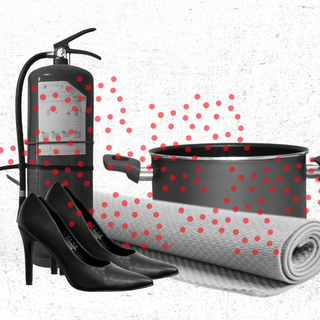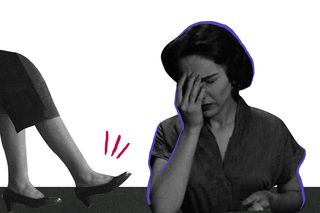
Why Seeing Others Fidget Is Stressful for Some People
At least one in three people experience misokinesia, that is, being annoyed at small and repetitive movements, according to new research.

“I can’t pay attention to a word [teachers] are saying… I’m focused on the guy playing drums on his legs with his fingers. Or the person biting their nails across the room. Or the person twirling their pencil around in circles,” a Reddit user noted a few months ago.
The experience wasn’t unfamiliar to people who faced a similar hatred for random movements. The negative emotions triggered by watching others fidget is called “misokinesia.” Turns out, it is a rather common psychological phenomenon. According to a first-of-its-kind research published in Scientific Reportslast week, as many as one in three people reportedly experience misokinesia.
“[Misokinesia] is defined as a strong negative affective or emotional response to the sight of someone else’s small and repetitive movements, such as seeing someone mindlessly fidgeting with a hand or foot,” a team of researchers explains. This can inspire emotional disgust, anger, frustration.
What has been studied so far is a related condition. “Misophonia” is when people become irritated due to hearing repetitive sounds (like slurping or humming). Think of misokinesia as a close relative, where the stressful sensation is triggered by visual cues instead of auditory ones.
In the present study, researchers interviewed 4,100 people about their response to visual cues. One-third of people attested to feeling stressed out by misokinetic behavior in daily life. “These results support the conclusion that misokinesia sensitivity is not a phenomenon restricted to clinical populations, but is rather a basic and heretofore under-recognized social challenge shared by many in the wider, general population,” they noted.
The impact of misokinesia is not limited to feeling stress. “They are negatively impacted emotionally and experience reactions such as anger, anxiety, or frustration as well as reduced enjoyment in social situations, work, and learning environments,” psychologist Todd Handy, one of the researchers who participated in the study, said in a press release. He added that some people may even pursue fewer social activities because of this.
A Reddit user remembers feeling terrible after their family teased them for “throwing temper tantrums” for objecting to foot-tapping.
Related on The Swaddle:
Everything You Need to Know About That Vague but Heavy Feeling of Stress
“Yet surprisingly, scientific research on the topic is lacking.” In fact, Handy was inspired by personal experience to pursue the topic after his partner told him his fidgeting made her anxious.
The question is: why does fidgeting annoy some people? One theory is that of “mirroring” the pain or anxiety of the person who fidgets. Generally, fidgety behavior such as foot-tapping or clicking the top of a pen is associated with stress or anxiety. Even people with ADHD are known to engage in fidgety behavior. In this case, researchers are interested to explore the function of “mirror neurons.”
“These neurons activate when we move but they also activate when we see others move… For example, when you see someone get hurt, you may wince as their pain is mirrored in your own brain,” Sumeet Jaswal, the study’s lead author, notes. Mirror neurons help people understand others and the intention behind their movements.
“…when individuals who suffer from misokinesia see someone fidgeting, they may mirror it and feel anxious or nervous as well.” In other words, people sensitive to visual cues may be empathizing with the person who fidgets in real-time. Empathy, however, amounts to a more psychological burden for them.
Even misophonia, the auditory sensitivity to triggers, wasn’t researched in depth until a few years ago. A 2017 study was among the first to offer compelling evidence that brain composition of people with misophonia is different from others.
One reason what made misophonia vexing is the repetitiveness and unpredictability. “This combination can make them more annoying: ‘When will it start? How long will it continue? When will it stop?” Dr. Arjan Schröder, a researcher who was studying the response of visual stimuli, told Psychology Today. Perhaps, the similar unpredictability and cadence may be grating in a visual context too.
Researchers are still looking for other possible explanations; some may even be genetic in nature. For now, the focus is on increasing awareness about visual cues-induced stress triggers. “To those who are suffering from misokinesia, you are not alone,” says Handy. “Your challenge is common and it’s real.”
This awareness can help inspire research. It also normalizes the experience of people who may be experiencing stress and frustration without understanding why. As one person notes: “I was so happy to find out there was a name for it and that I wasn’t crazy.”
Saumya Kalia is an Associate Editor at The Swaddle. Her journalism and writing explore issues of social justice, digital sub-cultures, media ecosystem, literature, and memory as they cut across socio-cultural periods. You can reach her at @Saumya_Kalia.
Related


In ‘Milestone’ Victory, UN Declares Eradication of Leaded Petrol Use
